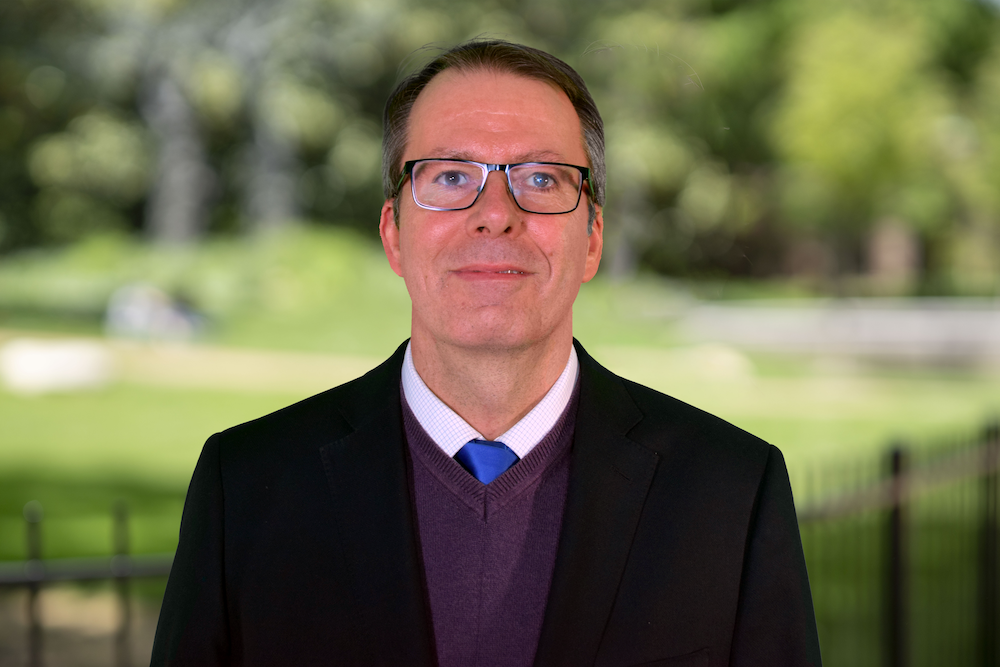Date: Wednesday, September 14, 2022
Time: 9:30-10:30AM
Location: Rauch Business Center, Room 241
This event features Dr. Kane Jennings, who will talk about “Integrating Plant Proteins with Polymers and Electrodes to Explore Biohybrid Solar Energy Conversion”, as part of the Lehigh University Chemical and Biomolecular Engineering's Fall 2022 Colloquium Seminar Series.
Abstract
The Photosystem I (PSI) protein complex found in photosynthetic organisms is known for its impressive photo-driven redox capabilities. PSI has two photoactive redox sites, the oxidizing P700 chlorophyll pair and the reducing FB iron-sulfur cluster with more than 1 V of potential difference between them. When deposited as a multilayer film on an electrode and exposed to a solution of appropriate redox species, PSI photocatalytically converts the mediator species to drive photocurrents. PSI can enhance the performance of natural dye-sensitized solar cells by increasing the concentration of oxidized species at cathodes and/or reduced species at anodes. Deposition of PSI with conducting polymers improves the electron turnover number of the protein by rapidly transferring electrons to and from the protein’s active sites. The presentation will discuss different types of strategies for integrating PSI with conducting polymers, including polymerization of monomers from the vapor phase into a PSI film, entrapment of the protein during electrochemical polymerization, and layer-by-layer deposition. We are currently investigating the use of the PSI active sites to perform photo-driven, nanomaterials chemistry directly at the protein surface. The wide range between reduction and oxidation potentials enables PSI to photooxidatively polymerize some conductive polymers and photoreduce metal ions into nanoparticles. Such modification of the protein provides opportunities to improve the wiring between PSI and electrode materials to elevate the prospects for biohybrid solar energy conversion.
About the Speaker
Dr. Kane Jennings is a Professor of Chemical and Biomolecular Engineering at Vanderbilt University. From 2013-22, he served as Chair of the Department of Chemical and Biomolecular Engineering at Vanderbilt. He received his B.S. in Chemical Engineering from Auburn University (1993), his M.S. in Chemical Engineering from Massachusetts Institute of Technology (1996), and his Ph.D. in Chemical Engineering from Massachusetts Institute of Technology (1998).
Dr. Jennings’s research efforts are aimed at the molecular design and fabrication of smart surfaces and materials, many of which mimic, replicate, or employ highly functional biological systems. His research uses the methods of self-assembly as well as surface-initiated polymerizations to modify surfaces with molecular or (bio)macromolecular films for applications in solar energy conversion, membranes, responsive coatings, superhydrophobic surfaces, and nanoscale lubrication. He has published over 110 peer-reviewed manuscripts. In this research, Dr. Jennings employs graduate and undergraduate students to train a cadre of talented young minds in the molecular and interfacial aspects of biohybrid, bio-inspired, and bioreplica materials. He has been recognized with several awards, including the 2015 High Impact Paper Award from the Vanderbilt Institute of Nanoscale Science and Engineering, the 2010 Arthur K. Doolittle Award from the American Chemical Society, the 2006 Vanderbilt Chancellor’s Research Award, and the 2005 Ellen Gregg-Ingalls Award for Excellence in Classroom Teaching. He has mentored two winners of the Vanderbilt School of Engineering’s Best Research Paper Award and one winner of the M. Douglas LeVan Award for Distinguished Record of Publication in the Department of Chemical and Biomolecular Engineering.
Department/Program:

